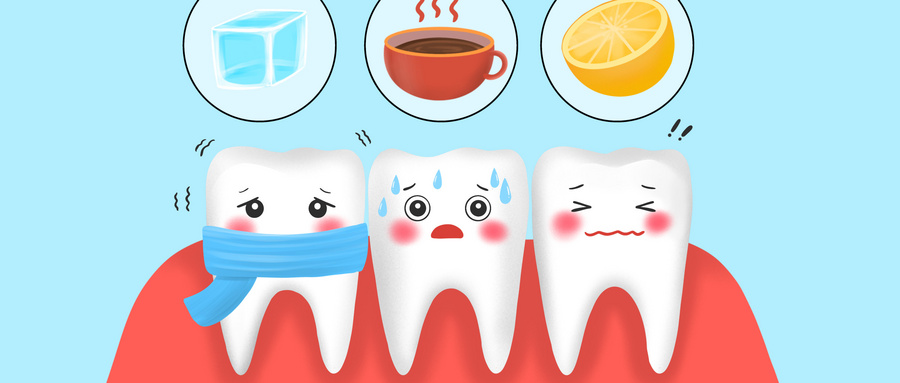Have you ever taken a sip of a hot beverage in cold weather, only to experience a sharp, uncomfortable sensation in your teeth? If so, you’re not alone. Yes, It’s a common problem that happens to a lot of people in winter.
But what causes this discomfort, and can cold weather make your teeth hurt? You might be wondering what you can do to protect your mouth in this situation too. Here we’ll help you understand why it happens and provide some tips to help you find relief.
Why Do Teeth Hurt in Cold Weather?
If you are wondering why your teeth hurt in cold weather, then this is for you. Cold weather, specifically cold air or cold foods and drinks, can trigger tooth sensitivity in many ways. Some of the ways are as follows.
1: Exposed Dentin
Your teeth are covered by a protective layer called enamel. This outer surface called enamel covers the sensitive inner portion known as dentin. The Dentin contains tiny tubes called tubules. These tubules connect to the nerve endings inside your teeth. When the enamel wears down or becomes compromised, it exposes the dentin, leading to tooth sensitivity.
2: Contraction and Expansion
When it’s cold, things tend to contract, and your teeth are no exception. The enamel covering your teeth contracts in response to cold temperatures. As a result, if your enamel has been already thin or compromised, the contraction can expose the nerves within your teeth, leading to pain or discomfort.
3: Dry Mouth
Cold weather often goes hand-in-hand with dry air. Dry mouth reduces saliva production, which normally acts as a protective barrier for your teeth. Without sufficient saliva, your teeth may become more susceptible to temperature-related pain.
4: Gum Recession
Receding gums can expose the tooth roots, which are not as well-protected as the enamel-covered crown. These exposed roots are highly sensitive to temperature changes.
5: Cracks or Cavities
Any cracks or cavities in your teeth can allow cold air and liquids to reach the dentin, causing discomfort.
6: Bruxism
Bruxism is the habit of grinding or clenching your teeth. It can make your teeth more sensitive to temperature changes, including cold weather. This is because bruxism can wear down the protective enamel on your teeth, exposing the sensitive dentin underneath. When dentin is exposed, you may experience increased sensitivity to hot and cold temperatures.
7: Excessive Whitening of the Teeth
Teeth whitening is something everyone seeks to. It brightens your smile and makes you dull and stained teeth white. People usually overuse it in their quest for brighter and whiter teeth. Some of the teeth whitening products contain harsh chemicals that can weaken your enamel, which in turn causes tooth sensitivity. Discuss your whitening options with Ekong Smile Oral Care manufacturer or with your dentist before beginning a whitening procedure.
8: Brushing too Vigorously
Brushing your teeth too vigorously can lead to tooth sensitivity, which may make your teeth more sensitive to cold weather. When you brush aggressively, you can wear down the protective enamel on your teeth, exposing the more sensitive dentin underneath. This can result in discomfort or pain when consuming cold foods or drinks.
How to Stop the Teeth Sensitivity
Now that you know why cold weather can make your teeth hurt, the next step is to know some ways to find relief. The below tips will help you to prevent or alleviate this discomfort.
1: Use Sensitive Toothpaste
Special toothpaste formulated for sensitive teeth can help alleviate discomfort. It typically contains ingredients that block the transmission of sensation from the tooth surface to the nerve.
2: Maintain Good Oral Hygiene
Proper brushing with dentist-recommended toothbrushes and flossing can help you prevent enamel erosion and gum recession, thereby reducing sensitivity.
3: Wear Mouthguard
If you know cold weather triggers your tooth sensitivity, try using a mouth guard during cold weather to help you protect your teeth from direct exposure to cold air.
4: Consult a Dentist
If your tooth sensitivity persists or worsens, it’s essential to consult a dentist. They can identify the underlying cause and recommend appropriate treatments that best suit your needs.
Conclusion
Cold weather can indeed make your teeth hurt, especially if you have underlying dental issues or tooth sensitivity. Understanding the causes of tooth sensitivity and taking steps to protect your teeth can help you enjoy the winter months without dental discomfort. Remember, a healthy smile is essential year-round, so don’t hesitate to seek professional dental care if needed.
Always contact Ekong Smile Oral Care manufacturer for your dentist-recommended Oral care products.

